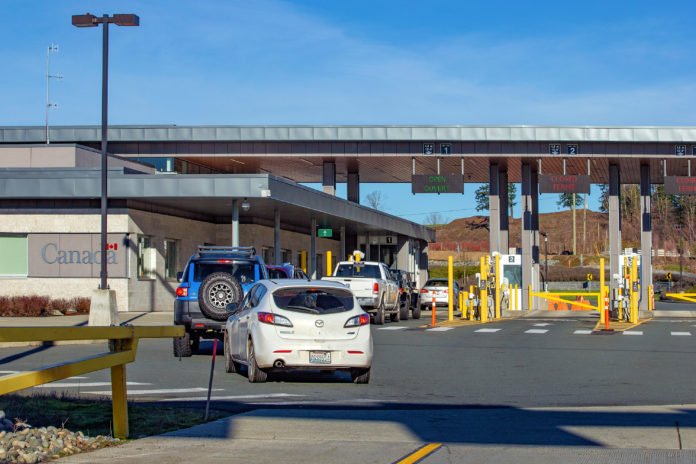
Canada has confirmed its plan to re-open the U.S. border and allow fully vaccinated Americans and permanent residents into the country starting Aug. 9.
“Thanks to the incredible progress that Canadians have made in our fight against the pandemic, we are now able to take the next step in Canada’s gradual reopening of the border,” said Immigration Minister Marco Mendicino in a statement on Monday.
“We look forward to welcoming fully-vaccinated Americans shortly, followed by travellers from the rest of the world in early September. Not only will this make a big difference for Canada’s travel and tourism industry and all those whose jobs depend on it, it will also make it easier for those with a Confirmation of Permanent Residence letter to come to Canada and play a role in our recovery from the pandemic.”
Read More
As Canada Economy Recovers, Immigration Set For Major Rebound In 2021
Canada Could Welcoming Vaccinated International Travellers From Early September
Canada Offers Open Work Permits For Candidates For New Pathway To Permanent Residency
Under the phased re-opening plan, Ottawa’s first step on Aug. 9 will be to allow the country American citizens and Canadian permanent residents who are currently residing in the United States and have been fully vaccinated at least 14 days prior to entering Canada for non-essential travel.
Canada To Re-Open If Case Counts Remain Low
Then, on Sept. 7, provided COVID-19 case counts remain low, Canada’s borders will re-open to any fully vaccinated travellers who have completed the full course of vaccination with a Government of Canada-accepted vaccine at least 14 days prior to entering Canada and who meet any specific entry requirements.
All travellers will have to use ArriveCAN, either as the app for cell phones or the web portal, to submit their travel information. Those fully vaccinated travellers eligible to enter Canada will not have to quarantine upon arrival.
“Canadians’ safety and security always come first,” said Health Minister Patty Hajdu. “With rising vaccination rates and fewer cases in Canada, we can begin to safely ease border measures.
“A gradual approach to reopening will allow our health authorities to monitor the COVID-19 situation here and abroad,” she said in a statement. “Canadians have worked hard and sacrificed for each other, and because of that work, we can take these next steps safely.”
With the re-opening of the border, Transport Canada is expanding the scope of its existing Notice to Airmen (NOTAM) that currently directs scheduled international commercial passenger flights into four Canadian Airports: Montréal-Trudeau International Airport, Toronto Pearson International Airport, Calgary International Airport, and Vancouver International Airport.
Five More Airports To Receive International Travellers
“As a result, today we announced new steps in our re-opening approach, including that international flights carrying passengers will be allowed to land at five more Canadian airports,” said Transport Minister Omar Alghabra.
International flights carrying passengers will be permitted to land at the following five additional Canadian airports starting Aug. 9:
- Halifax Stanfield International Airport;
- Québec City Jean Lesage International Airport;
- Ottawa Macdonald–Cartier International Airport;
- Winnipeg James Armstrong Richardson International Airport; and
- Edmonton International Airport.
These airports, in cooperation with the Public Health Agency of Canada, the Canada Border Services Agency and Transport Canada, are working to implement the measures necessary to safely welcome international passengers as soon as possible after Aug. 9.
Negative COVID-19 Test Still Needed
Everyone coming into Canada – regardless of their vaccination status – still need to provide the results of COVID-19 molecular test before coming into the country.
But starting Aug. 9, they will no longer need to take another COVID-19 test unless they have been randomly selected to complete one.
There are no changes to the mandatory testing requirements for unvaccinated travellers.
With this strategy, Canada is hoping to be able to continue monitoring COVID-19 variants in Canada and determine the effectiveness of the variants.
Public Safety Minister Bill Blair described the approach to gradually re-opening the border as one “guided by facts, scientific evidence and the advice of our public health experts.”
The Canadian government’s controversial three-night stay in government-designated hotels while awaiting COVID-19 test results is also being scrapped. Starting at 12:01 a.m. on Aug. 1, the quarantine hotels will become a thing of the past, no longer needed due to rising vaccination rates and dropping numbers of COVID-19 new daily cases.
All travellers, though, will still have to provide a quarantine plan and be prepared to quarantine, in case it is determined at the border that they do not meet the necessary requirements.
“The easing of Canada’s border measures is welcome news for tourism businesses across the country, the thousands of Canadians employed by the sector and the communities who rely on it,” said Economic Development Minister Melanie Joly.
“It has been a challenging year as we balance the need to protect both the health of Canadians and our economy but tourism businesses have demonstrated incredible resilience,” she said.
Under the Quarantine Act, anyone who submits false information on their vaccination status could be liable to a fine of up to $750,000 or six months imprisonment or both, and even prosecution under the Criminal Code for forgery.
Violating any quarantine or isolation instructions provided to travellers by a screening officer or quarantine officer when entering Canada is an offence under the Quarantine Act. This can lead to a $5,000 fine for each day of non-compliance or for each offence committed, or more serious penalties, including six months in prison and/or $750,000 in fines.
Non-compliant air travellers may also be subject to fines of up to $5,000 for each offence committed under the Aeronautics Act.

